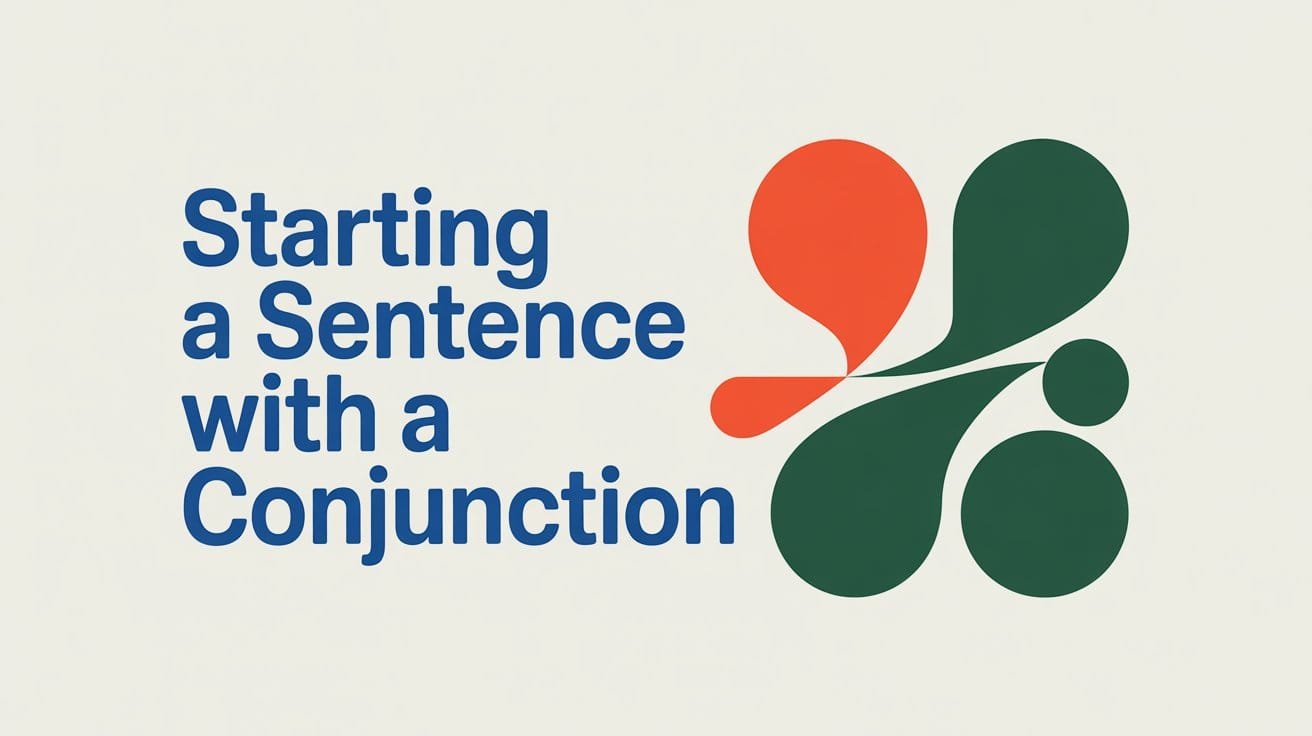Have you ever written a sentence that accidentally made it sound like an object or idea was doing something it couldn’t possibly do? That’s exactly what happens when a dangling modifier sneaks into your writing.
Example: Running down the street, the backpack fell off.
At first glance, it sounds like the backpack was running. Of course, that’s not what you meant—the person was running. This happens because the opening phrase Running down the street has no clear subject to attach to. It’s “dangling,” leaving readers to guess who’s performing the action.
Dangling modifiers are one of the most common grammar mistakes in English. They often slip into otherwise good writing because they sound natural when spoken, but break logic when written.
What Is a Dangling Modifier?
A dangling modifier is a word or phrase describing something, but the sentence doesn’t clearly say what it describes. In most cases, the modifier appears at the beginning, yet the sentence never introduces the subject it’s supposed to modify.
Think of it as a phrase that’s “hanging” with no noun or pronoun to connect to—it dangles in midair, leaving the reader to fill in the blanks.
Dangling: Walking to the station, the rain soaked my clothes.
Here, the modifier “Walking to the station” seems to describe the rain, as if the rain were walking.
Correct: Walking to the station, I got soaked by the rain.
Now the modifier clearly connects to I, making the sentence logical and complete.
Why Dangling Modifiers Cause Confusion
Dangling modifiers confuse readers because they create an illogical connection between ideas. The modifier describes one action, but the sentence structure makes it look like a different noun is performing that action.
When readers encounter a dangling modifier, they naturally try to link the opening phrase to the first noun they see—even if that noun doesn’t make sense as the doer of the action.
Example:
❌ Hurrying to finish dinner, the doorbell rang.
Here, the sentence suggests that the doorbell was hurrying to finish dinner. The problem isn’t just grammar — it’s logic.
✅ Hurrying to finish dinner, she answered the doorbell.
Now the modifier “Hurrying to finish dinner” clearly refers to she, the person doing the action.
Dangling modifiers often slip in because writers think the subject is implied. In speech, listeners can guess who the action belongs to. In writing, though, readers can’t—they only see the words on the page.
To keep your sentences clear, make sure every opening modifier has a logical and visible subject immediately following it.
Common Patterns of Dangling Modifiers
Most dangling modifiers follow a few predictable patterns. Once you know what to look for, you can spot and fix them easily. They often appear as introductory phrases that sound natural in speech but don’t connect to a clear subject in writing.
Participial Phrases
Participial phrases often start with words ending in -ing or -ed. When they dangle, they seem to describe the wrong noun. For example:
❌ Running down the hallway, the backpack slipped off.
✅ Running down the hallway, Emma’s backpack slipped off her shoulder.
In the first sentence, the phrase “Running down the hallway” seems to modify backpack, as if the backpack was running. The second version adds the missing subject (Emma) to clarify who was running.
Infinitive Phrases
Infinitive phrases start with to + a verb. They often dangle when the intended subject isn’t named. For example:
❌ To pass the exam, extra study sessions were needed.
✅ To pass the exam, the students organized extra study sessions.
The dangling modifier “To pass the exam” doesn’t have a subject in the first version. Adding students fixes the logic.
Prepositional Phrases
Prepositional phrases can also dangle when the sentence skips the noun they’re meant to describe. For example:
❌ After reading the report, the conclusion seemed flawed.
✅ After reading the report, the analyst found the conclusion flawed.
In the first sentence, the phrase “After reading the report” appears to describe the conclusion, which makes no sense. The second version identifies the analyst as the one reading.
Absolute or Dependent Clauses
Sometimes a whole dependent clause begins the sentence, but doesn’t connect to the right subject. For example:
❌ While driving to work, the traffic lights turned red.
✅ While driving to work, I stopped as the traffic lights turned red.
The incorrect version implies the traffic lights were driving. The corrected version supplies a logical subject—I.
Recognizing these patterns helps you catch dangling modifiers before they confuse your readers. Whenever a sentence begins with a descriptive phrase, make sure the next noun is the one performing the action.
How to Fix Dangling Modifiers (Step-by-Step)
Fixing a dangling modifier means giving the modifier a clear subject or moving it to the right position in the sentence. These steps will help you correct them logically and naturally.
Step 1: Identify the Modifier and Its Action
Start by finding the phrase that introduces the sentence—it usually describes an action. Then ask, who or what is doing that action?
❌ Walking across the street, the traffic light changed.
The modifier “Walking across the street” describes an action, but the sentence doesn’t say who’s walking. Clearly, the traffic light isn’t.
Step 2: Add the Missing Subject
Include the noun or pronoun that performs the action of the modifier.
✅ Walking across the street, I saw the traffic light change.
Now, the subject I shows who was walking, making the sentence logical and complete.
Step 3: Reword the Sentence if Needed
Sometimes adding the subject makes the sentence feel heavy or awkward. You can fix this by rewriting it for smoother flow.
❌ While preparing dinner, the phone kept ringing.
✅ The phone kept ringing while I was preparing dinner.
Rearranging parts of the sentence often removes the dangling problem without changing meaning.
Step 4: Keep the Subject Near the Modifier
If you start with a descriptive phrase, make sure the first noun that follows is the one being described.
❌ After finishing the assignment, the coffee machine stopped working.
✅ After finishing the assignment, I noticed the coffee machine had stopped working.
By placing I after the modifier, the sentence clearly identifies the subject performing the action.
Step 5: Check Long Sentences for Hidden Danglers
Long sentences with multiple ideas can easily hide a dangling phrase. Read them carefully and ensure every modifier attaches to a clear subject.
❌ Driving through the city late at night, the lights looked brighter than usual.
✅ Driving through the city late at night, we noticed the lights looked brighter than usual.
In the corrected version, we shows who was driving—solving the dangling problem instantly.
Dangling Modifiers vs. Misplaced Modifiers
Dangling modifiers and misplaced modifiers often look similar, but they’re not the same.
Both cause confusion by separating a modifier from what it’s meant to describe—but the problem lies in different places.
| Type | What’s Wrong | Example (Incorrect) | Correction |
|---|---|---|---|
| Misplaced Modifier | Modifier is too far from the word it describes | The dog chased the ball in the garden with spots. | The dog with spots chased the ball in the garden. |
| Dangling Modifier | Modifier has no subject to describe | Driving to work, the traffic was heavy. | Driving to work, I noticed the traffic was heavy. |
FAQs About Dangling Modifiers
What is a dangling modifier?
A dangling modifier is a phrase that describes something, but the sentence doesn’t say what it’s describing. It often comes at the beginning of a sentence and lacks a clear subject.
How do I identify a dangling modifier?
Look for an opening phrase that describes an action. Then ask, who or what is doing this?
If the answer isn’t in the sentence, the modifier is dangling.
Are dangling modifiers always incorrect?
In formal or academic writing, yes—they create ambiguity.
In creative writing, a writer might use them intentionally for rhythm or emphasis, but clarity should always come first.
What causes dangling modifiers?
They often happen when a writer assumes the subject is obvious.
In speech, listeners can infer who’s acting, but in writing, readers rely on structure — so the subject must be stated clearly.
How can I fix a dangling modifier?
Add the missing subject or move the modifier so it connects directly to the right noun.



